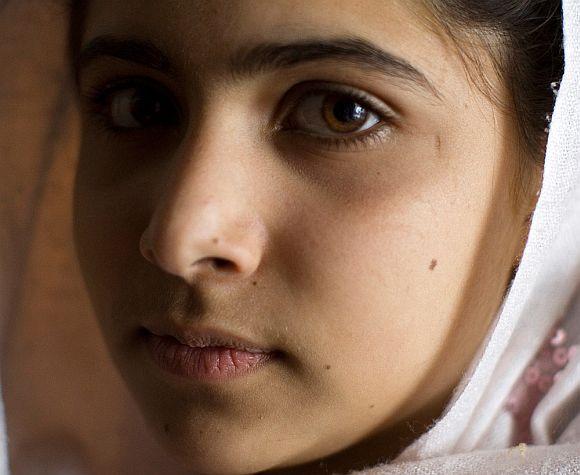
As 2012 draws to a close, rediff.com takes a look at the international personalities who hit headlines around the world.
We start off with the young Pakistani rights activist, Malala Yousafzai.
Malala Yousafzai is the young girl who dared to oppose Taliban's anti-education policies at the age of 11 when the militants took over control of Swat valley in 2009.
Malala, who spoke her heart via a blog and criticised the Taliban's activities, was targeted by the Taliban in October for campaigning for girls' education.
The murder attempt was a great shock for common Pakistanis because the Taliban immediately claimed responsibility.
She had become a symbol of girls' education before the attack on her. She became a symbol of national unity and bravery after the attack. Today, Pakistan stands behind her except some people who are still living in a state of denial.
She is now recovering in hospital in Britain, where she was flown to receive treatment unavailable in her own country.
Click on NEXT to go further...

Aung San Suu Kyi, who spent a total of 15 years in detention since 1989, contested an election for the first time in 2012 following her party's decision to end its boycott of a political system dominated by serving or retired military personnel.
As expected the pro-democracy campaigner and Nobel Peace Prize-winner, who endured years of house arrest, won.
As stifling political restrictions are eased, Suu Kyi has come to embody her countrymen's collective dreams.
Today, her face greets people from graffiti, posters, tea cups and T-shirts. Suu Kyi merchandise is fast-moving from store shelves. Stepping out of isolation, "The Lady", as she is reverentially called by many, finds herself a subject of mass adoration.
Suu Kyi traveled to London, Washington and Norway, where she was finally able to give her Nobel acceptance speech 21 years after winning it. The India-educated leader was accorded a big welcome when she touched down in New Delhi for a week-long trip.
Click on NEXT to to go further...
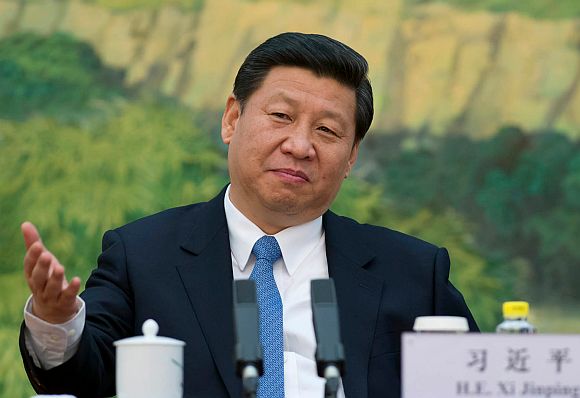
Xi Jinping replaced Hu Jintao has leader of China's ruling Community Party in November when the party met for its once-in-a-decade transition of power.
Xi has worked his way up skillfully making use of his 'princeling' background. Rising from a village head to a state leader, Xi carried the tag of a 'hereditary' communist for being the son of a former deputy prime minister, who was later persecuted by CPC founder Mao Zedong.
Like many Chinese leaders, Xi is also an enigma as very little is known about his views and achievements.
Challenges for Xi and his team include rebalancing the economy from export dependent to the one more relying on domestic consumption.
As China is expected to overtake the United States as the world's largest economy in the next four years, according to the Organization for Economic Co-operation and Development, Xi could become the world's most powerful man within his 10-year leadership.
Click on NEXT to go further...
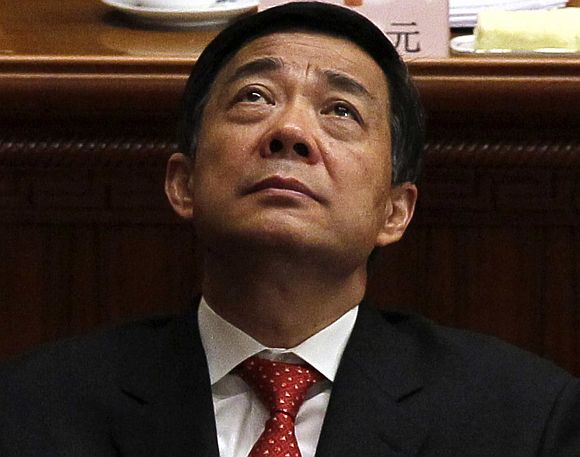
Bo Xilai was expected get into China's all-powerful Politburo's nine-member standing committee that was to replace the team headed by then President Hu Jintao and then Premier Wen Jiabao
But days before that could happen, the former leader of Chongqing, in southwest China, fell from grace in one of China's biggest political scandals.
According to the Time magazine, Bo had boosted his popularity by reviving Mao-era culture, expanding social safety nets and pushing an aggressive and sometimes brutal crackdown on organized crime. But his flashy initiatives angered rivals in China's buttoned-down Communist Party.
His wife Gu Kailai was convicted of the murder of British businessman Neil Heywood, who was found dead in a hotel room in Chongqing in November 2011.
Bo was accused of taking advantage of his position to seek profits for others and received huge bribes personally or through his family.
He now awaits trial on multiple criminal charges, and a long prison term is expected.
Click on NEXT to go further...
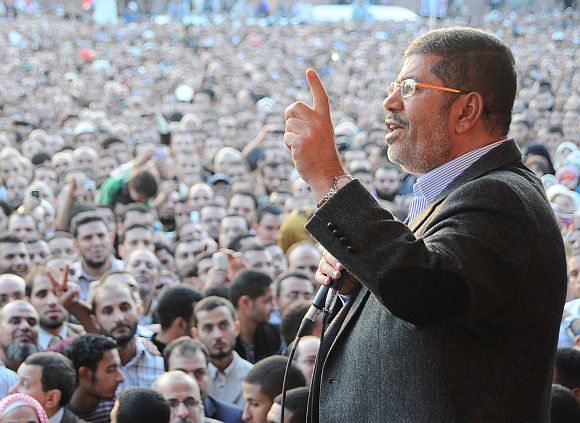
Egyptian President Mohammed Morsi, who became Egypt's first-democratically elected leader in June, has had a controversial term.
He made headlines worldwide when a declaration granting himself sweeping powers and ordering retrials of officials involved in the killing of protesters during the 2011 mass uprising against Hosni Mubarak.
His decision to give himself near-absolute powers saw opponents and supporters of the Muslim Brotherhood party clash in one of the worst violent outbursts since he took office.
The edicts by Morsi, which were issued on November 23, have turned months of growing polarisation into an open battle between his Muslim Brotherhood and liberals who fear a new dictatorship over Egypt.
He has since rescinded some of the powers. However, that has done little to quell opposition.
Click on NEXT to go further...
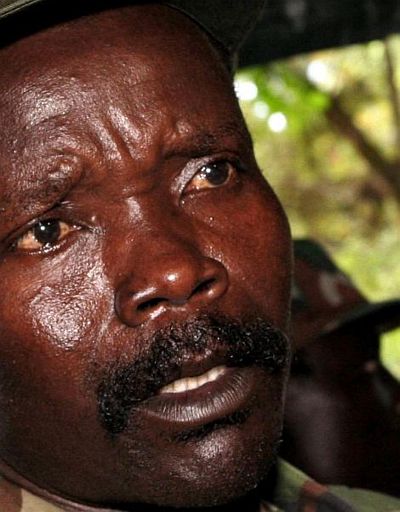
Fugitive warlord Joseph Kony and the Lord's Resistance Army have been abducting, killing, and displacing civilians in East and central Africa since 1987.
Kony and a small group of fighters have been moving freely in a region controlled by Sudan on the border of Central African Republic where troops haven't been allowed to pursue him.
His top commanders and the rest of the LRA fighters roam hundreds of miles away and continue killing and abducting civilians.
Kony made the headlines around the world this year when an an online documentary titled KONY 2012 made by the American activist group Invisible Children went viral on YouTube.
The video was watched 74 million times within a week of its release on YouTube in March.
Click on NEXT to go further...
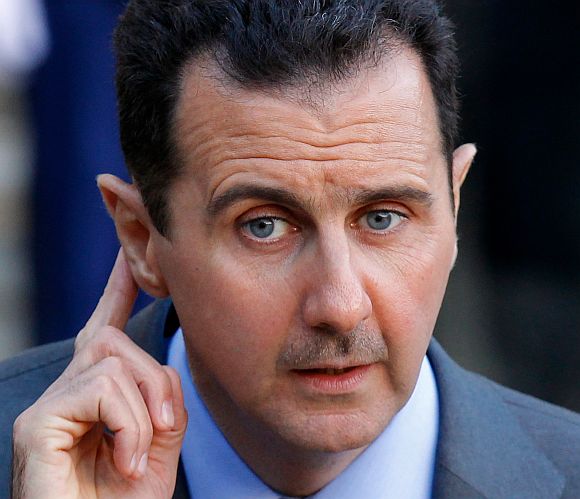
Bashar al-Assad, the 47-year-old Syrian President is perhaps the most reviled person in 2012.
Initially seen by the domestic and international community as a potential reformer and gaining the nickname "The Hope", this expectation gave way to the events of the Syrian civil war that has killed more than 40,000 people since March 2011.
Protesters who have demanded his resignation as well as the end to nearly five decades of Ba'ath Party rule, have been hammered with Assad's iron hand.
Opposition forces, mainly composed of defected soldiers and civilian volunteers, became increasingly armed and organized as they unified into larger groups, with some groups receiving military aid from several foreign countries
Around 2 million people are displaced within Syria's borders
Opposition supporters speculate that Assad's reserves are rapidly dwindling, and that if it becomes unable to finance its security forces, a collapse could come quickly.
However, Assad stands firm and continues to bomb civilians notwithstanding global condemnation.
Click on NEXT to go further...
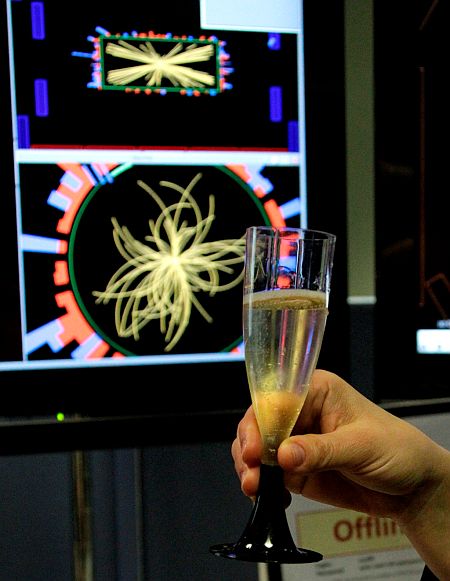
The five-decade-long hunt for the elusive Higgs boson or the 'God particle' has reached a milestone, with scientists at the CERN claiming on Wednesday that they have discovered a new subatomic particle that looks like the one believed to be crucial for formation of the universe.
The announcements were made to huge applause by scientists including Peter Higgs who first suggested the existence of the particle in 1964.
For 50 years, finding the missing Higgs was one of the most puzzling riddles of Quantum Physics, and led scientists to set up the 3 billion euros Large Hadron Collider, the world's biggest and most powerful particle accelerator.
The 27-km looped pipe set up in a tunnel 100 metres underground on the Switzerland-France border created artificially simulated conditions similar to the Big Bang, triggering collisions between accelerated particles.
In the LHC experiment, two beams of protons are fired in opposite directions to smash millions of particles into each other every second, a set up that recreats conditions that existed a fraction of a second after the Big Bang.
This is the time when the Higgs field is believed to have come into play. The Higgs particles are believed to have transferred mass to the millions of other particles in the process of creation of the universe.
Click on NEXT to go further...
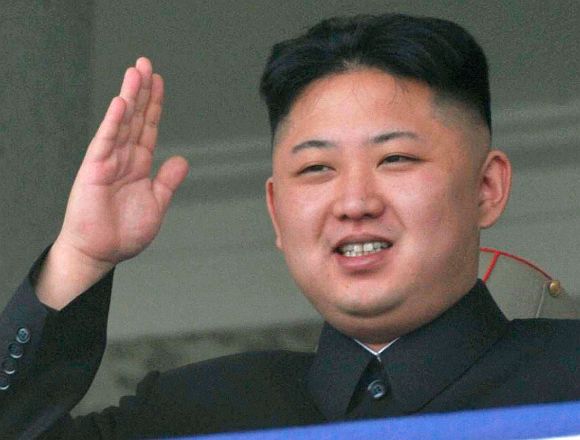
Many observers of North Korea, even in China, apprehended that Kim Jong-Un might not have had sufficient time to overcome opposition to his rise in power from family circles -- particularly his two elder brothers who were overlooked by his father Kim Jong-il on the reported ground that they were unfit to rule the country -- as well as from the party and the Korean People's Army, the main pillars of power in the world's remaining state concealed from the rest of the international community by a communist-style iron curtain.
Although Kim Jong-Un stressed that his "first, second and third" priorities were to strengthen the military, he has also voiced his determination that the North Korean people "will never have to tighten their belts again".
Kim Jong-Un has focused on consolidating his power base with a series of high-profile personnel changes, notably within the military elite, while at the same time pursuing Kim Jong-Il's missile programme.
Click on NEXT to go further...
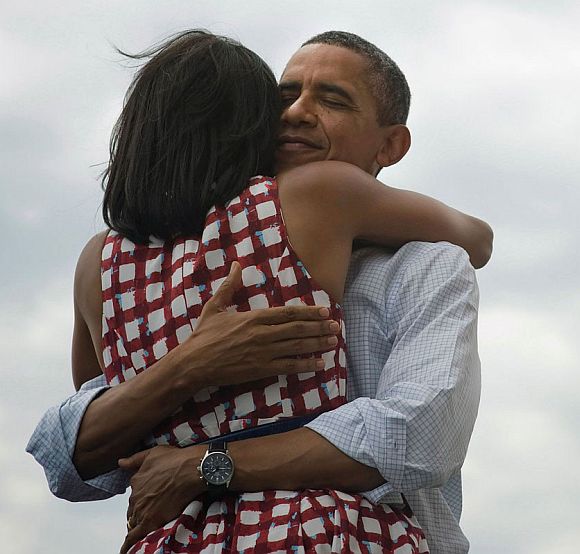
Barack Obama scripted history in 2012 when he was elected the President of the United States for the second conscutive term.
He overcame a stiff challenge from Republican Mitt Romney and defying concerns over his handling of economy and anxiety over the future.
51-year-old Obama, the first black American to occupy the White House, scored what turned out to be a comfortable victory over Romney after a bitter and costly campaign running over months, during which his rivals attacked him on issues of unemployment and recession.
Disproving predictions of a narrow victory in a very tight race, the incumbent won the election in crucial battleground states after a neck-and-neck race in the initial stages, getting 303 electoral votes against 206 of Romney in a college of 535 votes.
Now, Obama will have to keep his promise about historic reforms in health care and the way Wall Street operates. He is also likely to address the issue of thwarting Iran's nuclear ambitions.
Click on NEXT to go further...
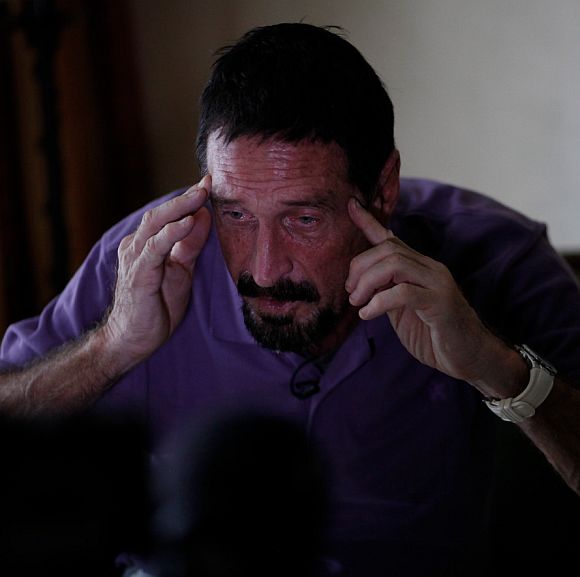
In September, John McAfee sprung onto the global stage when authorities in Belize sought to question him in the murder of his neighbour.
Rather than submitting to government questioning, he fled.
He made it to Guatemala, where he reportedly had a heart attack after being taken into custody for entering the country illegally. He was deported and is in Miami.
Unlike other fugitives, John McAfee hasn't shrunk from public attention.
He started a blog to vent allegations about the Belize government having a vendetta against him and proclaimed his innocence. Now, he's expressing a desire to move to the United Kingdom to restart his life with his two young girlfriends.
Click on NEXT to go further...
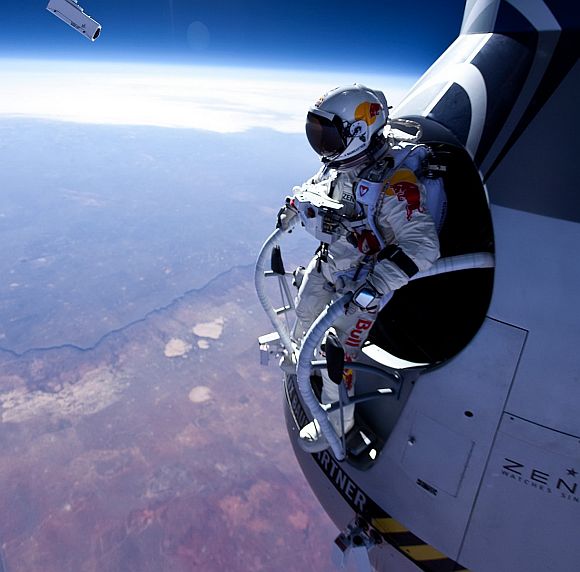
Austrian skydiver Felix Baumgartner broke the sound barrier in a record-breaking jump from a balloon floating nearly 37 kilometres above the earth.
Baumgartner who broke the record for the highest freefall has spent time in the Austrian military where he practiced parachute jumping, including training to land on small target zones.
He jumped from a capsule taken to 128,100ft (39km) above New Mexico in the US by a giant helium balloon.
It took nine minutes for him to reach the ground.
The adventurer plummeted at an estimated 1,343km/h, hitting Mach 1.24.
The capsule from which the skydiver fell was equipped with cameras to provide a live internet feed to millions of people around the world.
Click on NEXT to go further...

Wikileaks founder Julian Assange hit headlines when he lined up outside the Ecuadorian embassy in London seeking asylum.
Assange, who has been accused of sexual misconduct by two women in Sweden, had sought refuge in the embassy after a British court had ordered his extradition to Sweden.
The WikiLeaks founder said he was seeking asylum because he feared that Sweden would send him to the United States, where he could face the death penalty on espionage charges.
Ecuador's decision to grant him asylum doesn't completely end problems for Assange.
Since he is not a diplomat, he doesn't enjoy immunity and can be stopped and arrested if he leaves the embassy for the airport. That means he will have to stay in the embassy until the British government allows him a safe passage, which could take months and even years.
Meanwhile, from the balcony of the Ecuadorean embassy, Assange has promised to release over a million more documents in the coming year that will affect 'every country in the world'. So watch out!
Click on NEXT to go further...
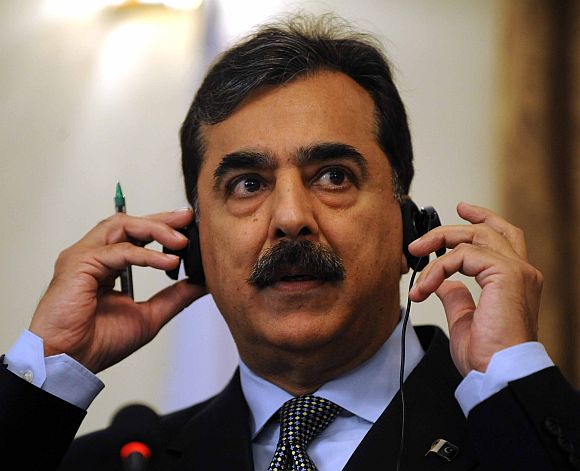
Engaged in a continued tug-of-war for supremacy with the military on one side, and an assertive judiciary on the other, Yousuf Raza Gilani's four years at Pakistan's helm was indeed a tumultuous period for him and the country which also saw frosty ties with India.
When Gilani became Pakistan's 17th prime minister after a return of democracy in 2008, not many critics gave him a chance for a long innings.
However, the Bhutto family loyalist showed remarkable resilience and determination to steer his democratically-elected government to a record term.
In the end, he went down to the supreme court, refusing to reopen graft cases against his party supremo Asif Ali Zardari.
Click on NEXT to go further...

On February 6, 2012, Queen Elizabeth II marked the 60th year of her reign.
Elizabeth Alexandra Mary ascended to the British throne on February 6, 1952, upon her father, George VI's sudden death. She received the news of her succession at the remote Sagana Lodge in Kiganjo, Kenya, where she and Prince Philip were holidaying.
Much has changed in Elizabeth's world since she became the queen. Television and now the Internet have become part of every day life -- the queen has her own web site. Man conquered the moon. The Berlin Wall collapsed. And subsequently the Soviet Union.
Today Elizabeth's popularity ratings are over 80 percent and are more often than not higher than the approval ratings of Britain's PMs. She has been perceived to be a hard-working queen in touch with the people of her kingdom.
She is also considered a fairly tech savvy royal -- she has her own e-mail account, uses a cell phone, often plays on the Nintendo Wii Kate gifted 'Wills' (till she was presented a gold-plated one) and presumably makes use of the iPod (loaded with 40 classic melodies) presented to her by US president, Barack Obama on his first presidential visit to Britain in 2009.
Click on NEXT to go further...
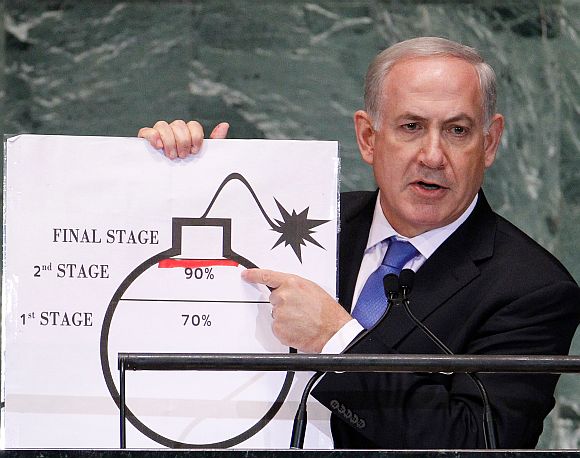
Israeli Prime Minister Benjamin Netanyahu made headlines in 2012 when in a theatrical gesture at the United Nations in September, he held up a cartoon-like drawing of a spherical bomb and drew a red line below the fuse, "before Iran completes the second stage of nuclear enrichment to make a bomb".
Netanyahu's remarks were the closest he or any top Israeli official has come to publicly laying out precisely which Iranian actions could trigger an Israeli military strike on Tehran's nuclear infrastructure.
He has now put Iran at the top of on his re-election campaign, pledging that halting Tehran's nuclear programme would be his first priority as premier.
Polls predict that Netanyahu's Likud party, which is running on a joint list with the ultranationalist Yisrael Beitenu faction of former foreign minister Avigdor Lieberman, will be by far the largest party in the next parliament
Click on NEXT to go further...

Vladimir Putin's re-election as Russian President triggered widespread protests with allegations of rigging echoing in the streets of Moscow.
Opposition leaders alleged that fraud was widespread in the presidential election, in which official results gave Putin 64 per cent of the vote.
Putin's latest tenure as President has been tumultuous.
The corruption cases against the former minister of defence, Anatoly Serdyukov, and his band of young and pretty female aides revealed rampant corruption in the defence procurement and property management -- and they are believed to be just the tip of the iceberg.
In 2012, relations with the United States further deteriorated. Moscow kicked out the US Agency for International Development, rejected an investigation into the death of Sergei Magnitsky (an anti-corruption whistleblower), and ignored calls to review the case of the former YUKOS owner Mikhail Khodorkovsky and his partners.
Click on NEXT to go further...
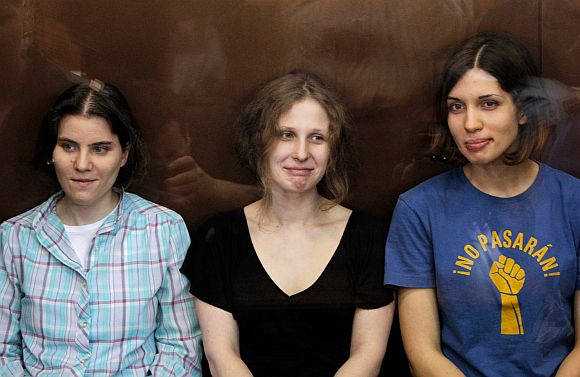
Pussy Riot, a Russian feminist punk-rock band which dared to take on Russian President Vladimir Putin, dominated world headlines this year.
On February 21, 2012, five members of the group staged a performance on the soleas of Moscow's Cathedral of Christ the Savior. Their actions were stopped by church security officials. By evening, they had turned it into a music video entitled "Punk Prayer -- Mother of God, Chase Putin Away!"
The women said their protest was directed at the Orthodox Church leader's support for Putin during his election campaign.
On August 17, 2012, the three members were convicted of hooliganism motivated by religious hatred, and each was sentenced to two years imprisonment. Two other members of the group, who escaped arrest after February's protest, reportedly left Russia fearing prosecution.
Public opinion in Russia was generally less sympathetic towards the women.
Putin stated that the band had "undermined the moral foundations" of the nation and "got what they deserved"
Click on NEXT to go further...
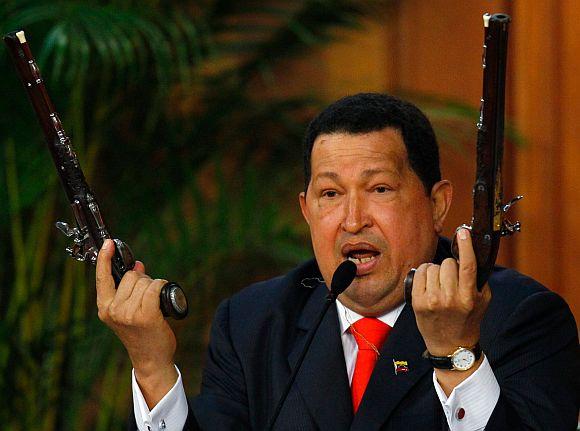
Venezuelan President Hugo Chavez's tryst with cancer continued in 2012.
The ebullient leader is 58 years old and has been visibly weakened by two surgeries for cancer. He has kept secret the kind of cancer he has and his prognosis.
In May, speculation intensified over who would succeed Chavez when he named 10 people to the highest circle of advisers to the president. But in July, he said he was cancer free.
Chavez, president since 1999, secured another six-year term at the helm of the oil-rich South American country.
But even as he vowed to press forward with his socialist reforms, cancer returned to haunt Chavez.
Chavez first underwent surgery for an unspecified type of pelvic cancer in Cuba in June 2011 and went back in December after tests had found a return of malignant cells in the same area where tumors were previously removed.
Venezuelan officials said that, following the six-hour surgery two weeks ago, Chavez suffered internal bleeding that was stanched and a respiratory infection that was being treated. He is reportedly 'up and walking' now.
Click on NEXT to go further...

Maldivian President Mohamed Nasheed made headlines when he resigned in February after losing the support of the military and the police during widespread protests triggered by the secret arrest of a senior judge.
He insisted that he was ousted in a coup and was forced to sign his resignation at gunpoint, but an inquiry commission concluded that he left office legally.
He was charged in July with illegally ordering the judge's arrest. The charge against Nasheed carries a maximum penalty of three years' imprisonment or banishment to a remote island.
Nasheed's party has said the case against him is aimed at preventing Nasheed from campaigning ahead of next year's elections.
But Abbas Riza, spokesman for the current president, Mohammed Waheed Hassan, rejected that allegation, saying the court order was "the usual practice, according to the country's law".
The new Maldives government triggered another controversy when it forced Indian infrastructure company GMR to hand over Male airport.
GMR, which was operating the Ibrahim Nasir International Airport at Male at an investment of $511 million, says it "feels cheated" for having the contract cancelled over an illegal component - airport development charge - present in it, which they were not aware of.
Click on MORE to see another YEAR-END SPECIAL...